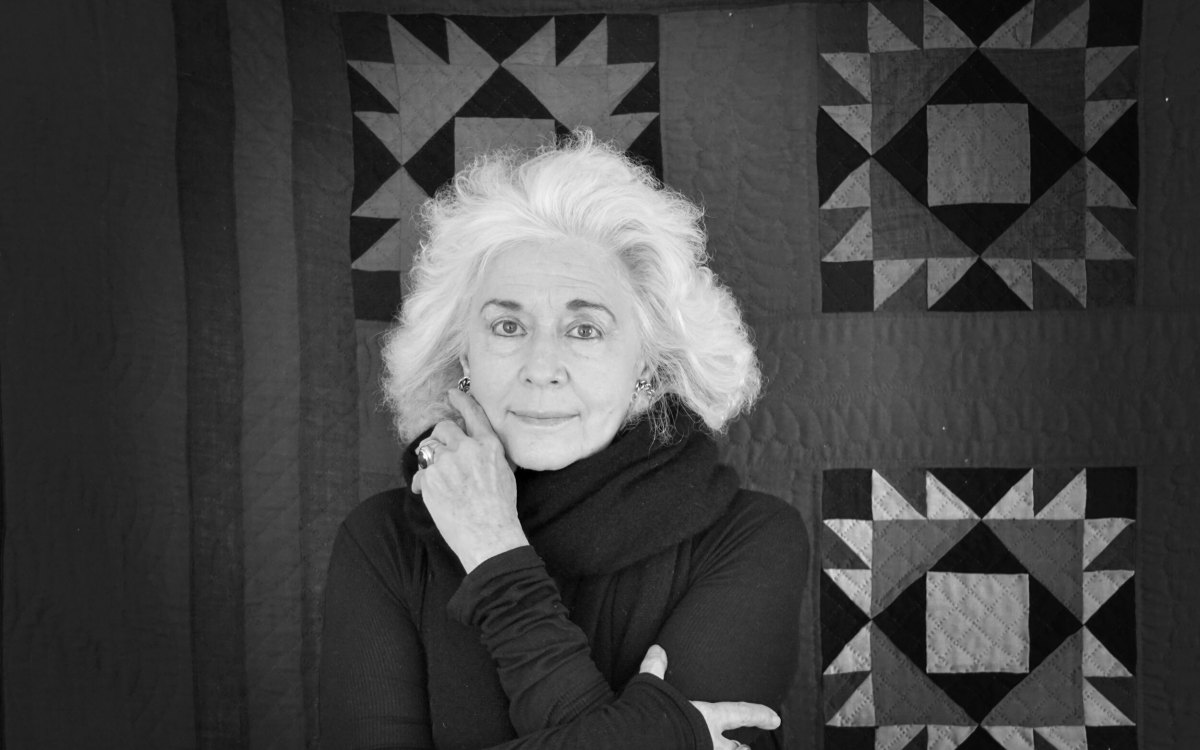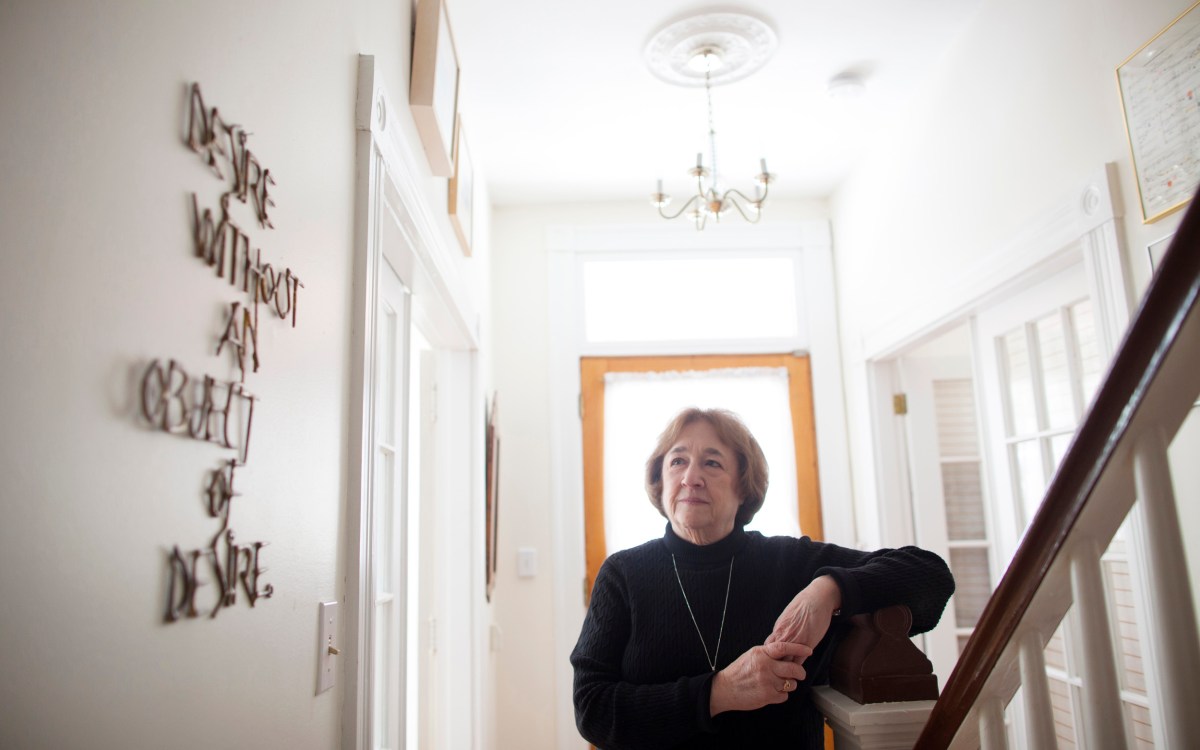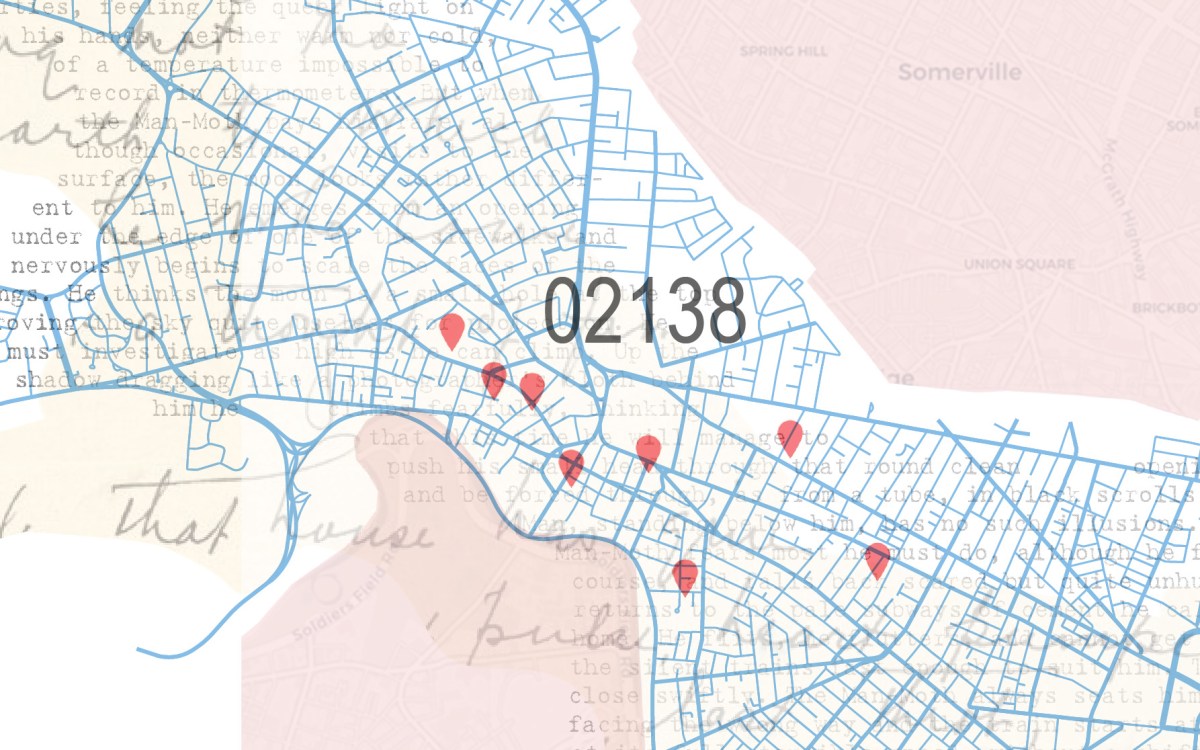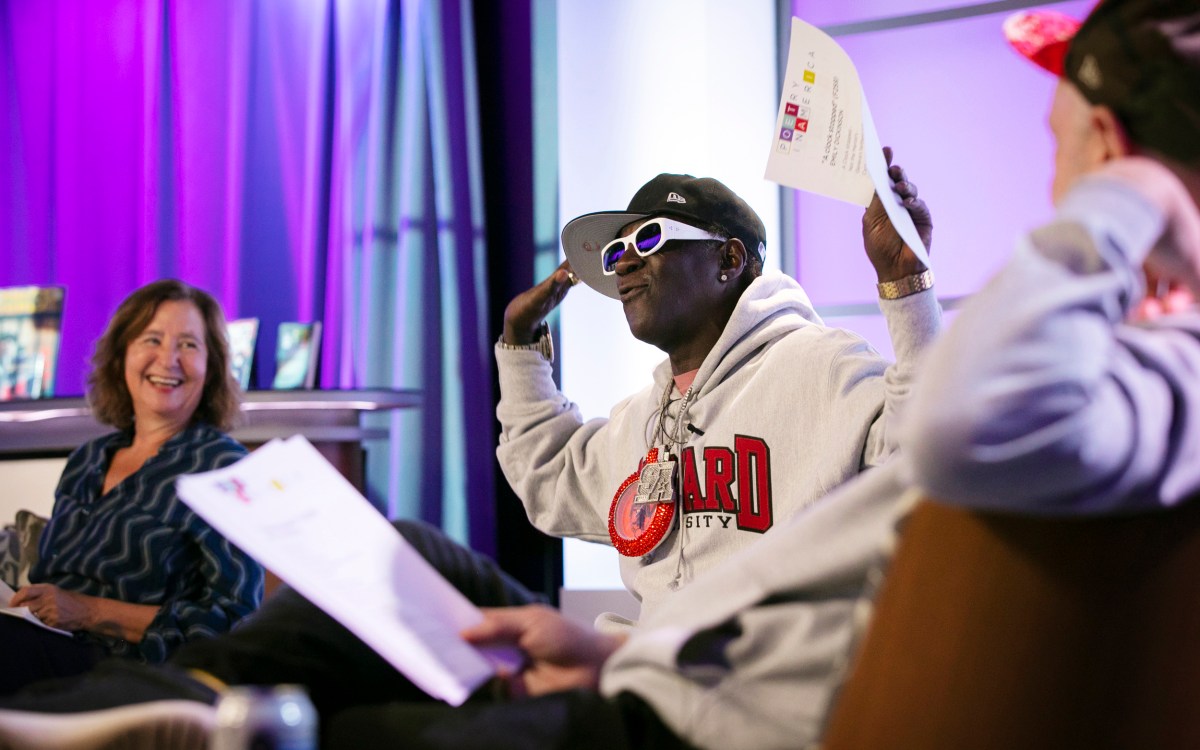‘As though somebody had taken a piece of your soul, created it into an object …’
Helen Vendler — honored for lifetime of achievement in poetry criticism — reflects on ‘magic’ of first book, writers who inspire, declining support for humanities
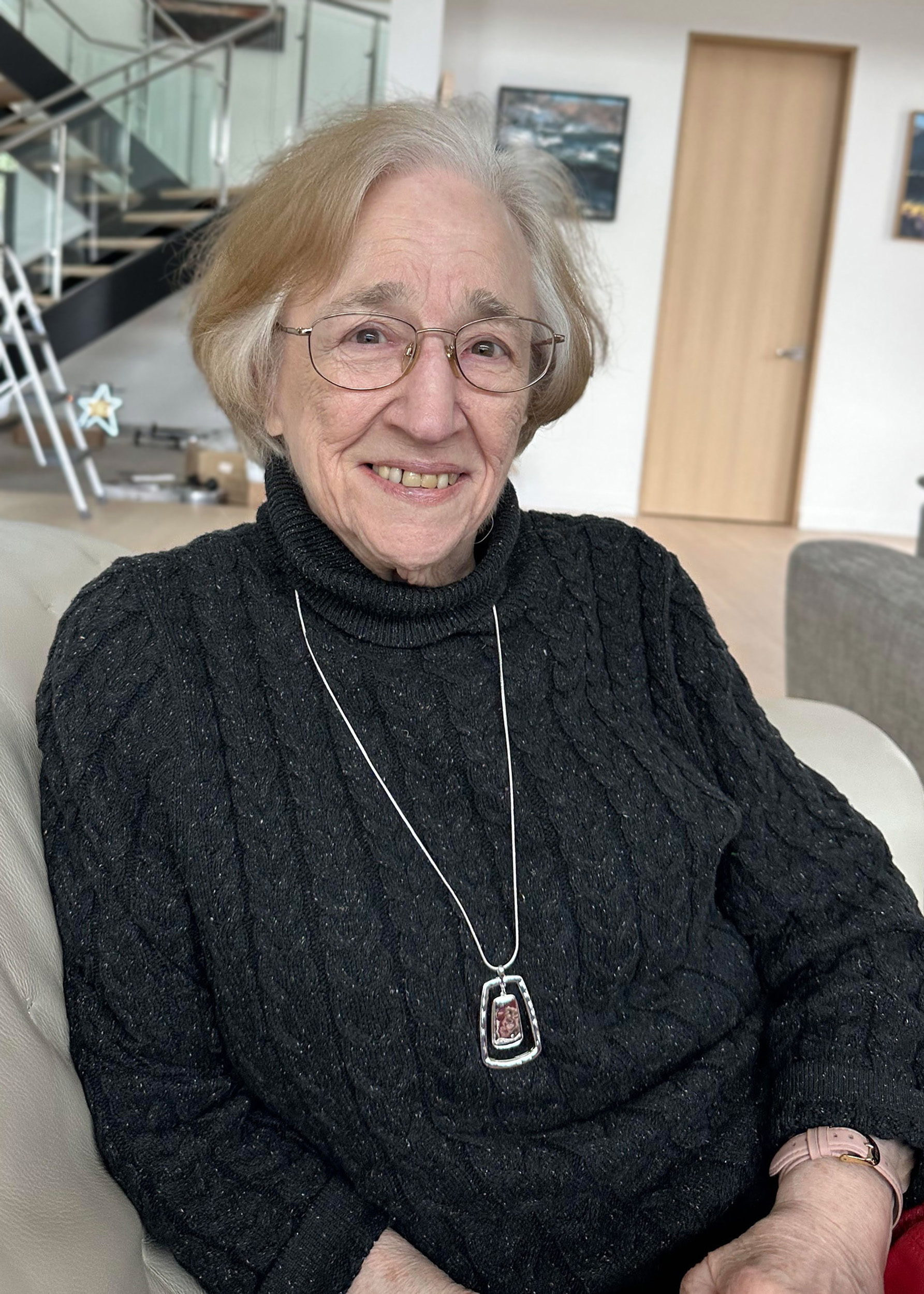
Photo courtesy of Helen Vendler
Helen Hennessy Vendler remembers the first time she received a copy of her own book in the mail.
“It was a hard-covered object that could be handled and transferred from one person to another out there in the big world,” Vendler said, recalling the awe she felt at unwrapping “Yeats’s Vision and the Later Plays” (1963).
Corresponding with the publisher had seemed like a fantasy, but Vendler’s debut felt real as soon as the package arrived from Harvard University Press. “It was as though somebody had taken a piece of your soul, created it into an object, and said, ‘Here’s a piece of you back.’ It seemed to me a form of magic, that the inside could become the outside.”
Vendler, Arthur Kingsley Porter University Professor Emerita, was awarded a Gold Medal for Belles Lettres and Criticism in May from The American Academy of Arts and Letters. It’s the Academy’s highest honor for excellence in the arts, and recognizes Vendler’s lifetime of work in the field of poetry criticism.
Called the “leading poetry critic in America” by The New York Times in 2006, Vendler has been credited with helping “establish or secure the reputations” of many poets, including Jorie Graham, Seamus Heaney, and Rita Dove. She has written on many of the genre’s giants, including Yeats, Emily Dickinson, John Keats, Shakespeare, and Wallace Stevens, and has published more than 30 books, most recently “The Ocean, the Bird, and the Scholar,” a collection of essays on poetry. She also taught in Harvard’s Faculty of Arts and Sciences for more than 30 years.
“I have never wanted to write on anything but poetry and I have never wanted to teach anything but poetry. … I was born with a mind that likes condensed and unusual language.”
Despite her renown, Vendler, now 90, said she was surprised — albeit delighted — to learn of winning the medal. She said she expected it would go to a literary genre that is more widely read today than poetry criticism.
“I have never wanted to write on anything but poetry and I have never wanted to teach anything but poetry,” Vendler said. “I do understand, I think, what it feels like to be a poet, even though I’m not one. I was born with a mind that likes condensed and unusual language, which is what you get from poems.”
Since retiring from Harvard in 2018, Vendler has settled in California to be closer to family. Although her health required a workload reduction in recent years, she still writes a regular column on poetry for Liberties, a quarterly journal of culture and politics.
Her favorite reads lately have included Ocean Vuong’s “Time Is a Mother,” which she said “amazed her” with its inventive language, and Boylston Professor of Oratory and Rhetoric Graham’s “To 2040,” which she described as a “harrowing” book that’s “as good as anything that’s ever been written.”
Although Vendler mainly chooses to write about deceased poets whose work stands the test of time, she is currently working on a column about Vuong as an example of modern poetry that uses language and structure to represent familiar ideas and situations in new and creative ways.
“It’s the ‘how’ that distinguishes good poetry from amateur poetry,” Vendler explained. “Something unusual, stylistically, has been discovered to do with the language, or something has been discovered to do with the imagination. You have to reimagine the situation represented symbolically, and not just write it down as though you’re keeping a diary but do something interesting with the language.”
Vendler believes most poetry produced today — like most poetry produced in any era — is decidedly mediocre. But, she added, even mediocre poetry has value because it provides comfort and inspiration to readers.
More like this
“All the amateur verse that’s published in America heartens the people who are looking for those sentiments expressed in what they pick up and read,” Vendler said. “They’re so grateful to have their souls represented.”
Vendler, who grew up in Boston, attended poetry readings at Harvard as a teenager and eventually returned to earn her Ph.D. in 1960. She went on to teach at Cornell, Swarthmore, Haverford, Smith, and Boston University before returning to Harvard to teach in 1985. At the beginning she was one of few women working in her field, and witnessed over the decades an increase in gender, racial, and income diversity that she says improved the higher education landscape. In 1990 she became the first woman named a University Professor.
Over the course of her career Vendler said she has witnessed a significant decline in support for and valuation of arts and humanities, both by governments and by many colleges and universities. She attributes this to the fact that the value of science and technology can be easily quantified by output, while it’s more difficult to quantify output in the humanities.
Students, Vendler said, are “very reasonably” being driven to majors that promise secure and well-paying jobs right after school.
“There’s a terrific disproportion of support for the arts. It’s hard to know when that balance will be righted again,” Vendler said. “The governmental values have to change. Let us give as much money to the humanities and make jobs as well-paying for people majoring in the humanities as the people majoring in computer science.”
Vendler describes her lifetime of writing literary criticism as an “adventure” she finds just as interesting as she did at the start.
“I found it exciting to write about the first book of a new poet, where I would be maybe the first person ever to comment,” Vendler said. “Just to be offered the chance to write on a stunning poet — oh, it was thrilling.”



